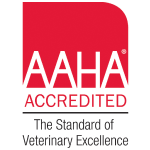While leptospirosis may not be something you talk about every day, it should be something every pet owner should think about. Leptospirosis or “lepto” for short is a disease caused by bacteria that affects cats, dogs, and other mammals. Furthermore, a case study completed in Chicago found that 25% of cases of lepto in dogs were fatal [1]. So, what do you need to know to keep your pet safe?
1. Leptospirosis Is More Common in Small Dog Breeds
While all dogs (and other mammals) are at risk of contracting leptospirosis, studies have shown that dogs under 14 pounds are more often affected. This may be because many small dog breeds become overheated more easily and seek out water sources. It may also be the result of smaller dogs being closer to the ground, where the bacteria may be hiding.
2. The Lepto Virus Is Often Hiding in Plain Sight
Leptospirosis is most often spread by rats, raccoons, and feral cats. But how do these bacteria wind up in a place where your pet may tread? Lepto is spread through urine into water sources. An unsuspecting dog or cat may walk through a contaminated puddle and contract the bacteria after grooming. Other thirsty pets unknowingly drink from stagnant puddles, ponds, or water sitting out at the dog park.
Pets can also become ill from leptospirosis from contaminated bedding, soil, and food.
3. Leptospirosis Can Spread to People
The bacteria that cause leptospirosis can infect humans as well as their pets. Humans can come in contact with the bacteria by handling soil, food, or water that has come in contact with infected urine. The two most common animals to spread the bacteria to people are dogs and rats.
4. Pets Are Most At-Risk During the Hottest Month of the Year
During the hot and rainy months of summer, leptospirosis numbers spike. Often these elevated numbers continue through fall. This is due to the fact that water sources merge, wild animals may come in closer to neighborhoods to drink, and high temperatures entice pets to drink more from unknown and standing water sources.
5. You Need to Make an Appointment Should Your Pet Show Symptoms
Because leptospirosis is quite serious and often fatal, it’s vital that you bring your pet in should they begin showing signs of the illness. Leptospirosis symptoms in pets include:
- Change in volume or frequency of urination
- Lethargy
- Lack of appetite
- Vomiting
- Diarrhea
- Fever
- Muscle soreness
- Reluctance to get up, walk, or partake in exercise
- Yellowing of the skin
- Inflammation and pain of the eyes
When left untreated, lepto can lead to kidney and/or liver failure. From time to time, pets may experience difficulty breathing and long-term lung disease. Others will develop blood disorders and swollen limbs.
6. You Can Reduce the Risk of Your Pet Contracting Lepto
When it comes to protecting your pet, you can make a major difference.
- First, pets with the leptospirosis vaccine are much less likely to contract the disease.
- Next, do not let your pet drink from landing water sources or water nearby where wildlife frequent. Instead, bring fresh water and a travel bowl on walks. Emptying and refilling your pet’s outdoor water bowl is also a great idea.
- Finally, discourage wildlife from coming into your backyard or around your home by eliminating food sources. This can be as easy as securing your trash bin lid with a bungee cord.
Leap into Leptospirosis Prevention
As the mercury continues to rise, it’s a great time to take additional precautions to protect your pet from leptospirosis. So, be sure to order a travel water bowl and make an appointment soon with our South Hyland Pet Hospital team for your pet’s leptospirosis vaccination.
Image credit: Pexels



